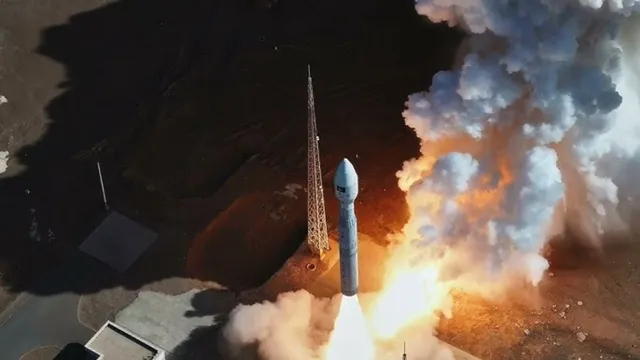- By Supratik Das
- Fri, 31 Oct 2025 03:53 PM (IST)
- Source:JND
China Pakistan space cooperation: China has taken another major leap in strengthening its strategic partnership with Pakistan, this time beyond Earth's bounds. Beijing reserved a seat for a Pakistani astronaut on an upcoming Chinese space mission-a first step in Islamabad's fledgling space ambitions.
CMSA announced that two Pakistani astronauts would join the joint training with their Chinese counterparts, after which one of them will later join a short-duration spaceflight to the Tiangong Space Station as a payload specialist. That mission will make the selected astronaut the first foreign visitor aboard China's orbiting laboratory, a move that underlines Beijing's growing role as a global space power and willing facilitator of allies' aspirations.
Deepening China-Pakistan Space Cooperation
The collaboration stems from a bilateral agreement signed earlier this year between the CMSA and Pakistan’s national space agency, SUPARCO. Under the plan, China will oversee astronaut training, equipment support, and scientific experiments to be conducted in orbit on behalf of Pakistan.
China’s CMSA spokesperson Zhang Jingbo said the initiative aims to promote international cooperation and “expand participation in the Chinese space station expeditions.” The partnership also aligns with Beijing’s vision to position its Tiangong Space Station as a viable alternative to the U.S.-led International Space Station (ISS), from which China has long been excluded due to American security concerns.
Pakistan’s Dependence On China’s Space Technology
While Pakistan established SUPARCO in the early 1960s, its progress has been slow, largely due to financial and technological constraints. The country lacks independent launch vehicles and relies on Chinese rockets for all its satellite launches.
Earlier this month, China launched Pakistan’s remote sensing satellite PRSS-2 from the Lijian-1 Y8 carrier rocket, the third such joint mission this year. PRSS-2, equipped with advanced sensors and imaging systems, will help Pakistan track environmental changes, urban growth, and natural disasters — but its dual-use potential also enhances strategic surveillance capabilities along borders.
“China’s consistent support helps Pakistan bridge its technological gaps,” said a SUPARCO official, noting that Islamabad’s long-term vision includes sending an astronaut to space by 2026 and participating in the International Lunar Research Station (ILRS) mission by 2028.
Strategic And Regional Implications
Thus, China's aid is more than a scientific goodwill gesture. The cooperation fits neatly into Beijing's Belt and Road Initiative framework, extending its influence into space technology and helping solidify Pakistan as a key regional ally.
ALSO READ: China Powers Pakistan’s Space Ambitions Again, PRSS-2 Takes Off: Here’s What It Means For India
For China, the move solidifies its soft power and demonstrates its willingness to share high-end technology with friendly nations-contrasting with Western-led space collaborations, which remain exclusive. For Pakistan, it's a leap toward self-reliance in areas where its regional rival, India, already enjoys an edge through the Gaganyaan human spaceflight mission and a robust satellite network.
ALSO READ: Why Moscow’s RD-93 Jet Engine Sale To Pakistan May ‘Benefit India’: Russian Experts Reveal Truth
Meanwhile, China said that its manned Moon landing goal for 2030 remains on track. Key hardware, including the Long March-10 rocket and the Mengzhou spacecraft, have entered advanced testing stages. As Beijing's space program gains pace, its cooperation with Islamabad marks a new dimension of strategic cooperation from Earth's surface to low-Earth orbit and beyond.
With inputs from agency.
